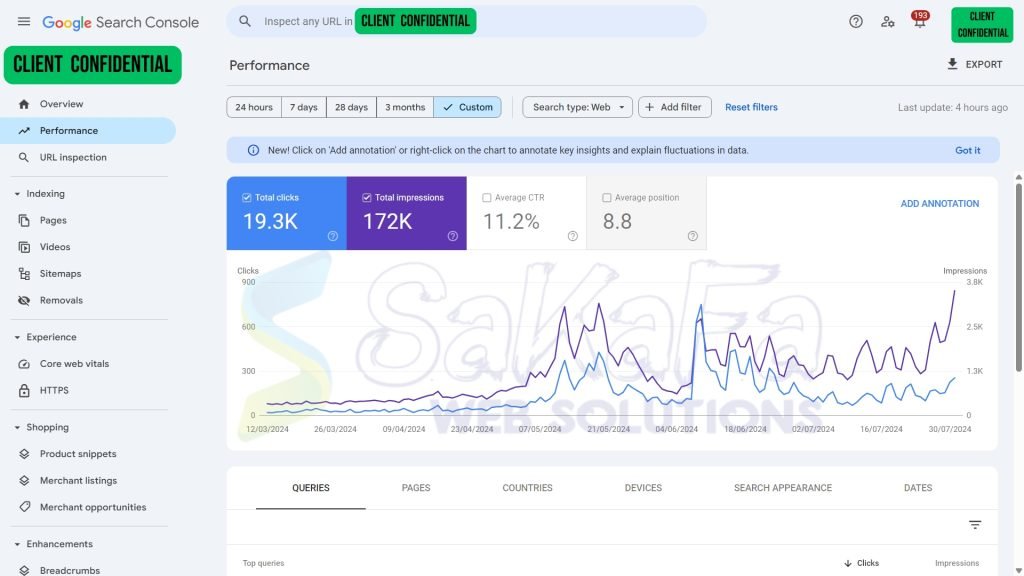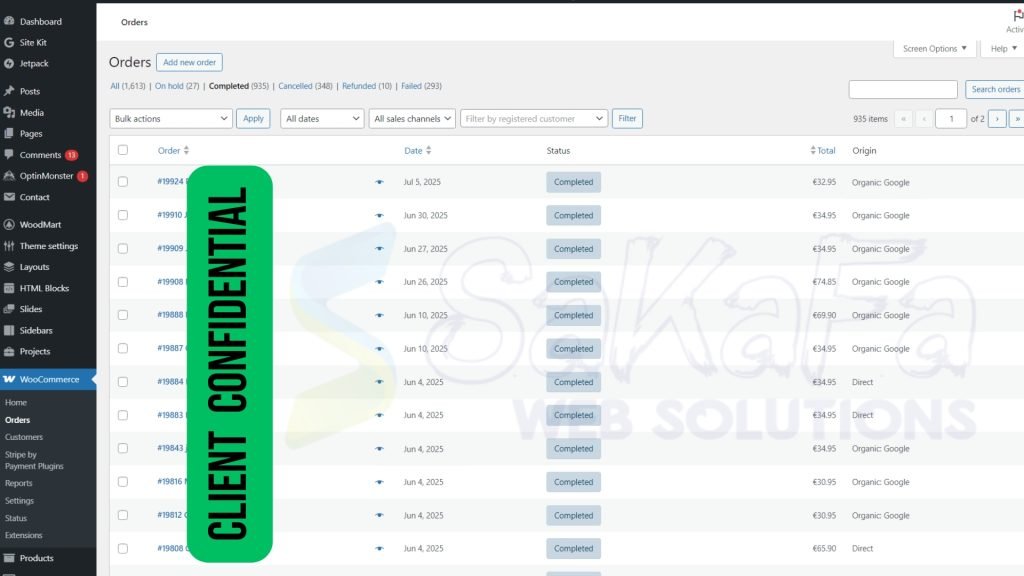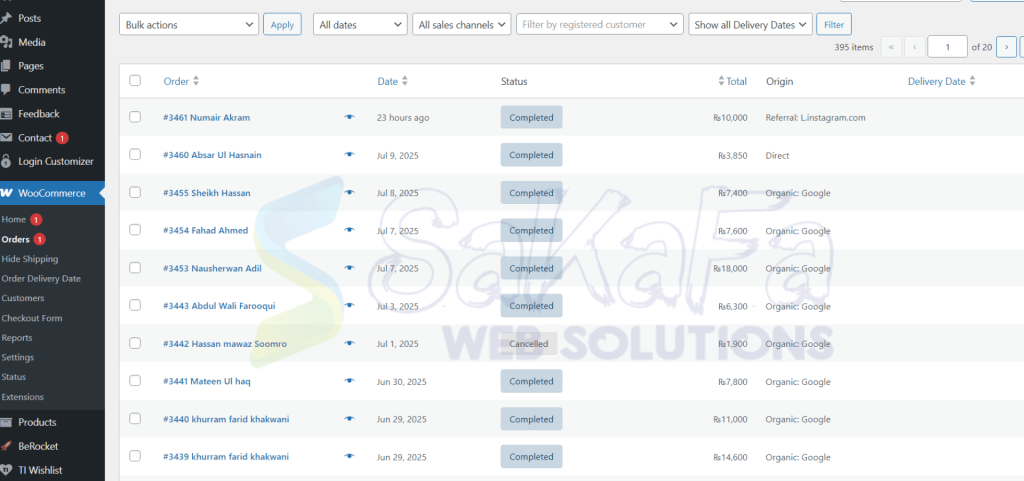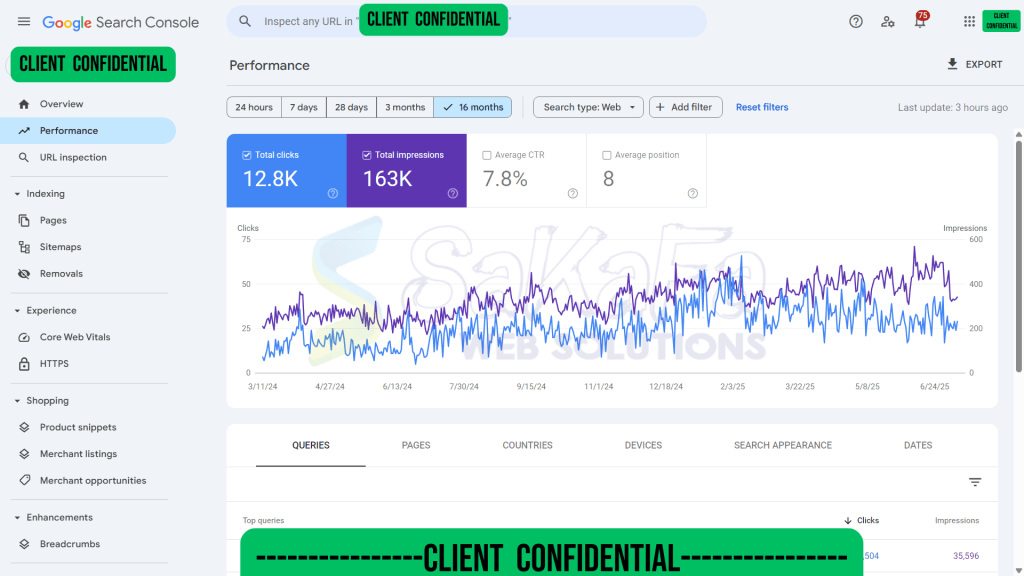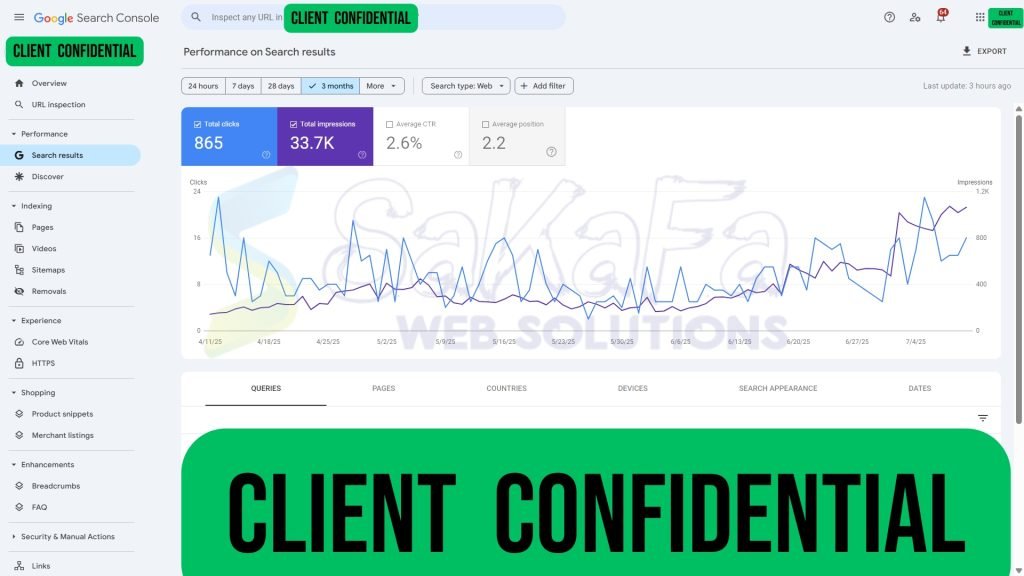Learn SEO Free From SaKaFa: Ultimate SEO Guide for 2025 Strategies, Tools, & Insights
1. Introduction to SaKaFa and SEO Expertise
Hi, I’m SaKaFa, a dedicated SEO specialist with a passion for helping businesses grow through strategic search engine optimisation. My journey began in 2017, after resigning from my job in Islamabad,
I returned to my hometown and began my journey in SEO along with a partner. We launched an AdSense blog on a 50/50 partnership. I focused on keyword research and on-page SEO, and together we successfully ranked five websites.
Our success sparked a trend – many others began copying our strategies. I learned everything about SEO on my own, relying entirely on free content from YouTube. That hands-on experience laid the foundation for the SEO expertise I offer today.
Yes, your read right, I learned SEO independently through YouTube, and after gaining deep expertise, I began offering professional SEO services in 2021. Today, I proudly serve clients worldwide, with many new customers coming through referrals, because when your SEO results speak for themselves, your clients spread the word.
If you’re looking to boost your online visibility, increase organic traffic, and grow your business, we’re here to help.
SaKaFa Web Solutions
- Contact: 0307 7777841
- Website: www.sakafa.net
- Let’s grow your business together.
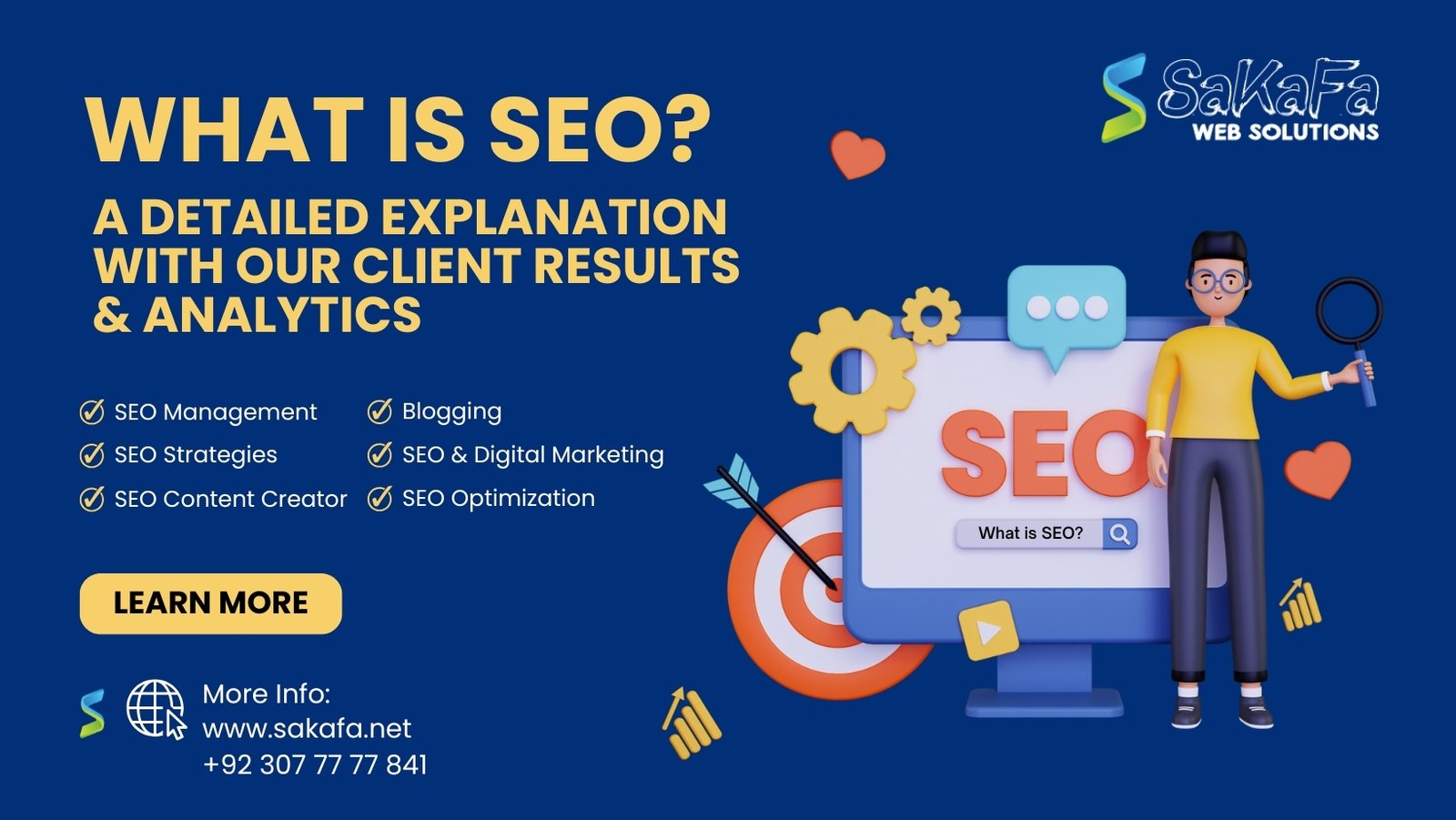
What is SEO? A Detailed Explanation and Learn SEO Free From SaKaFa
2. What is SEO? A Detailed Explanation with Links: Learn SEO Free From SaKaFa
What is SEO? A Detailed Explanation with Our Client Results and Analytics:
View Here
Start From Here, Learn SEO From Here:
SEO wo chiz hay jo koi bhi bataye kaam hay jiski bhi video milay zaroor sun ker kuch points note ker lain,
SEO is a continuous process; stay informed to achieve success.
1st Free SEO Class – 10th August 2025 by SaKaFa.net SaKaFa Web Solutions
Excel Sheet on-page SEO & with Complete Tools Data
For password, contact at 0307 77 77 481
What is SEO? A Detailed Explanation:
Search Engine Optimisation (SEO) is a buzzword that seems to be on every marketer’s lips these days. But what exactly is SEO, and why is it so important? In this article, we’ll break down SEO in simple terms, discuss its components, and delve into the latest updates up to 2025. Whether you’re a business owner, a marketer, or just someone curious about the digital landscape, this guide is for you, with proof of my clients’ data.
My clients live in Analytic, Sharing with you as proof
3. SEO Myths vs. Facts
More Tips with Details:
Kuch Asy myth ju beginner apni SEO journey mein face karta hai
SEO Myths vs. Facts
❌ Myth: Sirf backlinks se website rank hoti hai.
✅ Fact: Backlinks are important hain, magar on-page SEO, content quality, aur user experience bhi bohot zaroori hain.
❌ Myth: Keyword stuffing se ranking improve hoti hai.
✅ Fact: Google smart hai! Agar aap unnaturally keywords use kareinge, to ranking gir bhi sakti hai. Hamesha natural aur useful content likhein.
❌ Myth: Ek dafa SEO karne se hamesha ranking top par rahegi.
✅ Fact: SEO ek continuous process hai. Competitors bhi improve kar rahe hote hain, is liye aapko apni site ko update aur optimize karte rehna chahiye.
4. The Modern SEO Landscape: Challenges and Opportunities
- SEO IS FAILING—BUT SMART BUSINESSES ARE ADAPTING!
- Google’s algorithm is unpredictable, AI is flooding search results, and social media is now the go-to search engine for younger generations. If you’re relying only on SEO, you’re missing out on faster, more effective growth channels.
- 90.63% of pages get zero Google traffic—most SEO efforts fail. (Ahrefs)
- 45% of Gen Z prefers social media over Google for search. (NY Post)
- YouTube = The New Google → 2.5B+ users, longer watch time, and higher trust. (DataReportal)
- Paid social ads drive 3X more engagement than organic SEO. (AmericanEagle)
- Bing’s desktop market share in the U.S. is 17.43%—are you optimizing for it? (StatCounter)
- Bing Ads cost 33% less than Google Ads but often have a higher CTR. (WordStream)
- AI-generated content is diluting Google search results, making ranking harder. (TechCrunch)
- Google’s search ads cost have increased by 20-30% YoY, making organic traffic even more crucial. (Business Insider)
- TikTok is the new discovery engine—users trust recommendations from creators more than Google results. (SproutSocial)
What This Means for You
WHAT THIS MEANS FOR YOU:
- Diversify or fall behind → Leverage YouTube, Paid Social, and Bing alongside SEO.
- SEO alone is too slow → Fast-track results with video content & social search.
- Lower costs, higher returns → Bing Ads & paid social are cheaper and more effective.
- AI is changing search behavior → You need to build direct audience relationships instead of relying on algorithms.
The businesses winning today aren’t waiting for Google rankings. They’re taking control of their traffic now, with multi-channel dominance.
Still waiting for SEO to work? Or ready to take control of your growth? www.sakafa.net
5. The Foundation of Modern SEO
A lot of people in SEO still waste huge efforts on things that don’t really move the needle.
It’s not 2005 or 2010 anymore, yet some still focus too much on , 1, – , ℎ .
While these elements might have mattered more in the past, search engines have evolved.
Google can now render pages efficiently, rewrite titles for better CTR, and even recognize images without needing exact keyword alt text. Yet, many SEOs still fixate on micro-optimizations instead of prioritizing what truly matters.
:
– Making sure your URLs and domain can be found by search engines.
– Ensuring internal linking, accessibility, and proper crawl control.
– Making sure Google can properly render and interpret your pages.
– How Google understands your content, structured data, and UX.
– Managing indexation, query count, and diagnosing non-indexed pages.
– Ensuring quality, relevance, and optimizing for CTR.
Instead of getting stuck on outdated tactics, focus on the real impact areas: , ℎ , .
Last week, I did a deep dive into technical SEO, covering the aspects that truly matter. One key takeaway was how rendering analysis can help diagnose SEO issues, especially for dynamically loaded content. If your site isn’t rendering fully, it could be costing you rankings without you even realizing it.
SEO isn’t about fixing every little issue—it’s about working on what moves the rankings. Prioritize smartly, focus on user experience, and ensure Google can understand and serve your content effectively.
Learn SEO Free From SaKaFa www.sakafa.net
6. 5 Hidden SEO Issues Costing You $100K+
5 Hidden SEO Issues Costing You $100K+ With www.sakafa.net
83% of sites are losing revenue through technical SEO issues.
You can spend weeks diagnosing technical problems…
But what if I told you that with the right focus, you could fix the most revenue-draining issues in a single day?
Here’s the reality: Fixing the wrong things wastes time, but solving critical technical issues is like unlocking instant revenue.
It’s all about spotting the hidden problems that hurt your rankings, traffic, and conversions.
Let’s see the top issues you need to tackle NOW
1. Broken Internal Links
Loss: $25K+/month
You’re frustrating users and search engines alike by sending them to dead ends that hurt rankings.
Because they:
→ Decrease crawl efficiency, causing missed indexing opportunities.
→ Waste link juice by pointing to non-existent pages.
→ Increase bounce rates, driving users to competitors
Quick Fix: Run Screaming Frog weekly to catch 404s before Google does.
2. Incorrect Canonicals ❌
Loss: $35K+/month
You’re confusing Google with duplicate content and misdirecting ranking power away from important pages.
It’s bad because it:
→ Leads to duplicate content penalties, tanking SEO scores.
→ Diverts ranking power to irrelevant or non-preferred URLs.
→ Risks of de-indexing critical pages from SERPs entirely.
Quick Fix: Audit your top 20 pages’ canonical tags today.
3. Uncompressed Images
Loss: $20K+/month
You’re slowing page speeds and losing mobile users who won’t wait for heavy pages to load.
It’s bad because it:
→ Adds unnecessary MBs, reducing mobile performance scores.
→ Harms Core Web Vitals, especially Largest Contentful Paint (LCP).
→ Drives up bounce rates, lowering session durations.
Quick Fix: Compress images using TinyPNG/ShortPixel for faster loading
www.sakafa.net
4. Messy URL Structure ➰
Loss: $20K+/month
You’re making your site harder to navigate and missing SEO opportunities with unoptimized, chaotic URLs.
It’s bad because it:
→ Reduces crawl efficiency, leaving pages unindexed.
→ Confuses users with inconsistent paths like “/products/cat123”.
→ Misses keyword opportunities in URLs for improved rankings.
Quick Fix: Implement clear category > subcategory hierarchy
5. Duplicate Meta Tags
Loss: $15K+/month
You’re diluting your ranking potential with repetitive snippets that confuse both users and search engines.
It’s bad because it:
→ Causes keyword cannibalization, reducing the performance of key pages.
→ Lowers user engagement with repetitive meta descriptions.
→ Decreases SERP visibility with vague or irrelevant snippets.
Quick Fix: Use Semrush to find and rewrite duplicate meta tags today.
7. White Hat, Black Hat, and Gray Hat SEO
Which SEO path will you choose: Good, Bad, or Mixed?
1. White Hat SEO
Good Guys
White hat SEO is like following the rules in a game. You play fair and don’t cheat. This helps websites get better rankings in search engines like Google.
Examples:
- Writing good content: Create useful and interesting articles or blog posts that people want to read.
- Using keywords naturally: Add important words (keywords) in your text where they make sense.
- Building links: Ask other websites to link to your site because they like your content.
Techniques: - Quality content creation
- Keyword research and optimization
- Getting backlinks from reputable sites
2. Black Hat SEO
Bad Guys
Black hat SEO is like cheating in a game. People use tricks to fool search engines and get better rankings quickly. But, they can get caught and punished.
Examples:
- Keyword stuffing: Putting a lot of keywords in your text unnaturally.
- Cloaking: Showing one thing to users and another thing to search engines.
- Buying links: Paying other sites to link to your site just to improve rankings.
Techniques: - Hidden text and links
- Duplicate content
- Link farms
3. Gray Hat SEO
In-Between
Gray hat SEO is a mix of good and bad. It’s not as bad as black hat, but not as good as white hat. People use some tricks but try not to get caught.
Examples:
- Guest blogging: Writing articles for other sites with links back to your site. This is okay if done naturally but can be bad if overdone.
- Using expired domains: Buying old website addresses to use their old links for your site.
- Spinning content: Changing some words in an article to make it look new and original.
Techniques: - Slight keyword stuffing
- Some paid links
- Article spinning
PS: It’s always best to follow white hat SEO practices. Playing fair may take longer, but it keeps your website safe and respected.
8. Using Reddit for SEO Keyword Research
How to Use Reddit for SEO Keyword Research
Improve your SEO strategy with these actionable tips using Reddit as a keyword research tool:
1️⃣ . Identify Active Subreddits
- Find subreddits relevant to your niche.
- Observe user discussions and questions.
2️⃣ Analyze Popular Threads
- Look for threads with high engagement (upvotes/comments).
- Note trending topics and user phrasing.
3️⃣ Find Long-Tail Keywords
- Spot detailed questions users ask.
- Target phrases aimed at solving specific issues.
4️⃣ Use Reddit Search for Ideas
- Search for your keywords to discover user discussions.
- Collect popular terms and variations.
5️⃣ Explore “Reddit Keyword Tool”
-
Leverage tools designed to extract keywords directly from Reddit.
6️⃣ Leverage the “People Also Ask” Format
- Use user-generated questions to create FAQ-style content.
- Answer their queries directly in your posts.
7️⃣ Discover User Intent
- Understand the why behind user questions.
- Create content that addresses their specific needs.
8️⃣ Track Emerging Trends
- Identify new topics and discussions.
- Use these for timely, relevant content.
9️⃣ Use Polls & Surveys
- Engage Redditors to gather insights and ideas.
- Refine your content strategy based on feedback.
1️⃣2 Monitor Competitor Mentions
- Look for your competitors on Reddit.
- Learn from their strategy to refine your own.
1️⃣1️⃣ Sort by “Top” Posts
- Analyze top posts over time for recurring high-interest topics.
- Use this data to generate content ideas.
www.sakafa.net
9. 39 Free SEO Tools to Push Your Website to Page 1
39 Free SEO Tools To Push Your Website To Page 1!
1.) Bing Webmaster
Keyword Reports
Keyword Research
Crawling Data
2.) Looker Studio
Merge and visualize data from various sources like Search Console and Google Analytics.
3.) Enhanced Google Analytics Annotations
Overlays additional data on your analytics to help correlate traffic changes with external events.
4.) Google Analytics
The most widely-used web analytics tool that integrates with other Google products.
5.) Search Console
Essential for accessing data on how Google crawls and ranks your site.
6.) Answer The Public
Generates a massive list of questions from any keyword set.
7.) Keyword Explorer
Offers keyword suggestions, volume ranges, and Moz’s Keyword Difficulty Score.
8.) Keyword Planner
Designed for Google Ads but useful for SEO keyword planning.
9.) Beam Us Up
A free desktop crawler for Windows, perfect for unlimited crawling.
10.) Link Redirect Trace
A Chrome extension to analyze redirect paths, HTTP headers, and more.
11.) Screaming Frog
The popular desktop crawler has a free version allowing up to 500 URLs per crawl.
12.) Disavow Tool
Helps manage and remove harmful backlinks to protect your site from penalties.
13.) Link Explorer
Offers the largest and most accurate link index with a free version for basic use.
14.) Backlink Checker
Free tool from Ahrefs to quickly check backlinks for quick SEO insights.
15.) Google My Business
Essential for managing your business listing, responding to reviews, and more.
16.) Review Link Generator
Generates a URL for customers to leave a Google review easily.
17.) Moz Local
Checks your business’s information and citations across the web for consistency.
18.) Mobile First Index Checker
Ensures major elements match on both mobile and desktop versions of your site.
19.) Mobile-Friendly Test
Determines if your page meets Google’s mobile-friendly requirements.
20.) Mobile SERP Test
Compare search results by device and location for a comprehensive analysis.
21.) Mobile-Friendly Test
Check if your page is mobile-friendly and provides specific areas to improve.
22.) Chrome DevTools
Offers SEO tasks like JavaScript auditing and on-page SEO.
23.) Marketing Miner
Gather SERP data, rankings, and competitive analysis into reports.
24.) MozBar
Provides link metrics, on-page analysis, and SERP insights.
25.) SEMrush
All-in-one tool for site auditing, keyword, and domain reporting.
26.) SEO Minion
Analyzes on-page SEO, checks broken links, and performs SERP previews.
27.) SEOquake
Performs on-page audits, domain comparisons, and data exports.
28.) Sheets for Marketers
Offers 100+ Google Sheets templates for SEO tasks like site audits and keyword research.
29.) Small SEO Tools
Provides over 100 specific SEO tools, including backlink and keyword tools.
30.) Varvy
Offers free website audit tools for on-page SEO, page speed, and mobile SEO.
31.) Natural Language API Demo
Analyzes text for entities, sentiment, syntax, and categorization.
32.) Rich Results Test
Validates structured data for eligibility in Google’s Rich Results.
33.) Structured Data Testing Tool
Troubleshoots structured data and provides competitive analysis.
34.) Tag Manager
Injects tags into HTML and supports various SEO functions.
35.) View Rendered Source
Compares the fully rendered DOM to the original HTML for auditing.
36.) BuzzSumo
Analyzes top content and social shares for trending topics.
37.) Hunter
Find and verify email addresses.
38.) SimilarWeb
Provides competitor traffic analysis and engagement metrics.
39.) Wappalyzer
Identifies the technology stack a website uses.
Learn SEO Free From SaKaFa
10. 12 Bold SEO Predictions for 2025 Learn SEO Free From SaKaFa
12 Bold SEO Predictions
1.) AI Overviews Will Replace Featured Snippets
AI overviews are doing the same job that featured snippets used to do.
If your content isn’t structured to be understood by AI, you’ll lose visibility.
Focus on clear, context-driven content that answers questions comprehensively.
2.) Backlinks Will Become Less Relevant, and Brand Building Will Take Over
Google is moving toward prioritizing authority and trust—and that comes from building a strong brand.
Link Building has been shady for so long that even Google wants to make this practice obsolete.
Trusting the brand is the best alternative.
3.) SEO Will Require More Marketing Skills
Understanding user behavior, crafting engaging content, and knowing how to convert visitors into customers are essential.
If you’re only focusing on rankings and clicks, you’re missing the bigger picture.
It’s about mastering both art and science.
4.) AI in SERP Will Reduce Traffic, But Not Proportional Sales
AI will answer many user queries directly in the SERP, leaving fewer reasons for clicks.
The traffic you do get will be more targeted, and conversions will increase.
The focus should be on quality over quantity, attracting visitors who are ready to buy, not just browse.
5.) Keywords Will Phase Out, and Entities Will Take Over
Search engines are shifting toward understanding entities—concepts and topics, not just strings of words.
That means SEOs need to think bigger.
It’s a shift towards smarter, more holistic optimization.
6.) Semantics Will Become Bigger Than Backlinks
Google wants to know that your content answers the user’s intent, not just that other sites link to it.
This means that focusing on content depth, relevance, and user satisfaction will outshine any link-building strategy.
In the coming years, SEOs prioritizing what users truly want, over chasing the next backlink, will win.
7.) AR and VR Will Become Relevant to SEO
With immersive experiences becoming more popular, search engines will start rewarding sites that offer these enhanced experiences.
If you’re not thinking about how to incorporate AR and VR into your user experience strategy, you’re missing a huge opportunity to stand out.
The future of SEO isn’t just about search—it’s about experience.
8.) SEOs Without Marketing Skills Will Lose Their Jobs
SEOs who don’t evolve into full-fledged marketers will become obsolete.
The technical aspects of SEO are still important, but they’re no longer enough.
You need to understand how to build strategies that convert users into customers, and how to craft compelling content that resonates with your audience.
9.) Branded Search Will Become a Ranking Factor
Search engines will see how often users search directly for your brand as a ranking factor.
When users consistently look for your brand by name, it signals to Google that you’re an authority in your space.
Building a recognizable, trusted brand will become a significant part of ranking well in search results.
10.) More UGC Content Will Mean Better Rankings
User-generated content (UGC) will play a huge role in the future of SEO.
Authentic, user-created content like reviews, testimonials, and social mentions will boost your brand’s visibility and trustworthiness.
Search engines favor brands that have a strong connection with their audience, and UGC is a direct signal of that.
11.) SEO Will Stop Being Only About Google
The integration of Bing with Microsoft Copilot is making Bing search more relevant than ever.
They are turning Search Engines into a powerhouse for precision searches and enhanced user experiences by integrating the tools you are actually using.
Many more such solutions may defeat Google in its own game.
12.) SEO Will Evolve But Will Not Die
The fundamentals of search optimization will still matter, but the methods and strategies will adapt to new technologies like AI, AR, VR, and voice search.
The SEOs who survive will be the ones who can embrace change and innovate.
It’s simply evolving into something smarter, more sophisticated, and more aligned with user intent.
www.sakafa.net
11. SEO Priority List: High, Medium, and Low Impact Activities
High vs. Medium vs. Low Impact Activities – SEO Priority List
Minimal Impact (Low ROI, Waste of Time)
These tasks aren’t worth your time when your technical SEO is not really broken.
- Constant XML Sitemap Reviews
- Tweaking Canonical Tags
- Endless Structured Data Adjustments
- Obsessing Over Page Speed
- Micromanaging Image Compression
- Messing with Robots.txt
- Rechecking Mobile-Friendliness
- Chasing Redirect Chain Ghosts
- Fixating on Crawl Budget
- Fixing every error in GSC
Moderate Impact (Good ROI, but Requires Significant Effort)
Worth your time, but results come slower.
- Competitor Monitoring
- Link Building via Digital PR
- Multimedia Optimization
- Voice Search Optimization
- User-Generated Content Integration
Maximum Impact (High ROI, Moves the Needle Fast)
These will skyrocket your SEO performance. Focus here.
- Entity-Based Optimization (Semantic SEO)
- Content Gap Analysis
- Internal Linking Strategy
- Topic Clustering
- User Experience (UX) Optimization for Mobile
- Content Refresh and Expansion
- CTR Optimization (Meta Titles & Descriptions)
Learn SEO Free From SaKaFa www.sakafa.net
12. SEO Voice Search Optimization Strategy Learn SEO Free From SaKaFa
SEO Voice Search Optimization Strategy
Use Conversational Keywords
- Target long-tail, natural-sounding phrases
- Focus on question-based keywords
Optimize for Featured Snippets
- Provide concise answers to common questions
- Use bullet points or numbered lists for easy indexing
Focus on Local SEO
- Ensure Google My Business profile is up to date
- Include “near me” in content for location-specific searches
Write in Natural Language
- Use a casual, conversational tone in content
- Avoid jargon and overly complex wording
Optimize for Question Phrases
- Structure content around “How”, “Why”, “What” questions
- Create FAQ sections targeting common queries
Prioritize User Intent
- Focus on delivering value based on user needs
- Align content with common voice search intents (quick answers)
Leverage Structured Data
- Use schema markup for better search engine understanding
- Focus on content types like FAQs, how-tos, and reviews
www.sakafa.net
13. Ultimate SEO KPI Cheat Sheet
25 Ultimate SEO KPI Cheat Sheet:
- Organic Traffic Volume
- Keyword Rankings
- Click-Through Rate (CTR)
- Bounce Rate
- Conversation Rate
- Page Load Time
- Backlink Quantity
- Backlink Quality
- Domain Authority
- Organic Clicks
- Pages per Session
- Top Exit Pages
- New vs Returning Users
- Mobile Traffic
- Pageviews
- Time On Site
- Top Landing Pages
- Search Engine Share of Traffic
- Local Visibility
- SERP Features Occupancy
- Organic Conversion Value
- Keyword Growth
- Content Gaps
- Branded vs Non-Branded Traffic
- Indexation Issues
www.sakafa.net
14. Essential SEO Tools We Use
12 Important SEO Tools we use regularly…
- Google Search Console ( SEO )
- Google Analytics ( Measurements )
- Semrush ( Research )
- Ahrefs ( Research )
- Screaming Frog ( Audit )
- JetOctopus ( Audit )
- Rank Math ( Site Optimization )
- PageSpeed Insights ( Speed Optimization )
- Lighthouse ( Speed Optimization )
- Rankability ( Content Optimization )
- Moz (Chrome Extension)
- Detailed ( Chrome Extension )
Learn SEO Free From SaKaFa
15. Additional SEO Terms for Optimization
Here are five additional SEO terms to help you optimize your content:
- Header tags – These are HTML tags (H1, H2, H3, etc.) that organize and structure your content, making it easier for search engines to understand and users to read. Use header tags to break up long content and highlight important keywords.
- Content optimization – This refers to the process of making your content more relevant and valuable to search engines and users. This includes using relevant keywords, meta descriptions, and optimizing images and videos.
- Page speed – This is the time it takes for your webpage to load. Search engines like Google consider page speed when ranking websites, so it’s essential to optimize your images, videos, and code to ensure fast loading times.
- Mobile-friendliness – With most users accessing websites through mobile devices, search engines prioritize mobile-friendly websites in their rankings. Ensure your website is responsive, has easy-to-click buttons, and loads quickly on mobile devices.
- Local SEO – If your business serves a specific geographic area, local SEO helps your website rank higher in search results for location-based searches. This includes optimizing your website with name, address, and phone number (NAP) consistently across the web, and creating content relevant to your local audience.
Remember to incorporate these SEO terms and concepts into your content strategy to improve your search engine rankings and drive more traffic to your website!
16. SEO Terminology for Beginners
If you’re not familiar with SEO, it can be overwhelming to understand the terminology. Here are some key terms that you should know:
- Keywords – These are the words or phrases that people use to search for information on search engines like Google. It’s important to use relevant keywords in your content to increase your visibility in search results.
- Backlinks – These are links from other websites that point to your website. Backlinks are important for SEO because they show search engines that other websites consider your content to be valuable.
- Meta description – This is a brief summary of your webpage that appears in search results. It’s important to write an informative and engaging meta description to encourage users to click through to your website.
- Title tag – This is the title of your webpage that appears in search results and at the top of the browser window. It’s important to include relevant keywords in your title tag to improve your search engine ranking.
- Alt text – This is a description of an image that appears when the image cannot be displayed. It’s important to include relevant keywords in your alt text to improve your search engine ranking.
Remember to use these SEO terms in your content to improve your visibility in search engine results!
17. Boost Blog Engagement with These 5 Post Types
Increase Your Blog Engagement With These 5 Types of Posts
I’m thrilled to share some insider tips on how to amp up engagement on your blog with some seriously awesome content. Whether you’re a seasoned blogger or just starting out, these strategies are bound to make your readers sit up and take notice!
- Listicles That Pack a Punch
Who doesn’t love a good listicle? They’re easy to read, share, and provide quick, actionable tips. From “Top 10 Ways to…” to “5 Secrets About…”, listicles are a surefire way to capture your audience’s attention and keep them coming back for more. - How-to Guides That Simplify Complex Tasks
Ever found yourself Googling “How to…”? Your readers have too! Create in-depth, step-by-step guides that solve common problems or teach valuable skills. Whether it’s cooking hacks, tech tutorials, or DIY projects, everyone loves a guide that makes their life easier. - Behind-the-Scenes Sneak Peeks
Take your audience behind the curtain and show them what goes on behind the scenes of your blog or business. From day-in-the-life posts to office tours, giving your readers a glimpse into your world fosters a deeper connection and builds trust. - Interviews with Industry Experts
Reach out to influencers, thought leaders, or experts in your niche and feature them in an interview on your blog. Not only does this provide valuable insights for your audience, but it also helps you tap into their audience and expand your reach. - Interactive Content that Sparks Conversation
Shake things up with interactive content like quizzes, polls, or surveys. Not only are they fun and engaging, but they also encourage your audience to actively participate and share their thoughts, fostering a sense of community.
So Learn SEO Free From SaKaFa , there you have it – five types of blog posts guaranteed to drive engagement and keep your audience coming back for more. Get creative, have fun, and watch your blog flourish! Learn SEO Free From SaKaFa contact us
18. Boost Your Business with Local SEO
Learn SEO Free From SaKaFa: Boost Your Business with Local SEO
Local SEO is crucial for any business that wants to attract customers in their area. 46% of all Google searches are looking for local information—that’s a huge opportunity for you to reach potential clients nearby!
Here are 3 essential tips to improve your local SEO:
- Claim and Optimize Your Google My Business Listing: This is your business’s online profile, and it’s often the first thing customers see when searching locally. Make sure your business name, address, phone number, and hours of operation are accurate. Add photos and respond to reviews to keep your profile active.
- Encourage Customer Reviews: Positive reviews are a powerful tool. Not only do they build trust with potential customers, but they also improve your ranking in local search results. Ask happy customers to leave a review on your Google My Business page—it can make a big difference!
- Use Local Keywords: Incorporate location-based keywords in your website content, meta descriptions, and titles. For example, if you run a bakery in Chicago, use keywords like “best bakery in Chicago” or “Chicago custom cakes.” This helps search engines understand that your business is relevant to local searches.
By focusing on these areas, you can start seeing an increase in local traffic and customers. React if you’re ready to take your local SEO to the next level!
19. Wrapping Up: Ultimate SEO Guide for 2025 Final Thoughts
Learn SEO Free From SaKaFa: SEO ek continuous process hai jo businesses ko online grow karne mein madad deta hai. Ye guide, brought by SaKaFa Web Solutions, covers everything from debunking myths (sirf backlinks se ranking nahi hoti), fixing technical issues (like broken links, duplicate meta tags), to modern strategies (YouTube, Bing, voice search optimization).
Use 39 free tools like Google Search Console and Screaming Frog, focus on high-impact tasks like semantic SEO, and track KPIs like organic traffic. SEO wo chiz hay jo koi bhi bataye kaam hai—stay updated, diversify traffic sources, and prioritize user experience for 2025 success.
Learn SEO Free From SaKaFa:
If you have any more questions or need further clarification, feel free to ask!
Dua Mein yaad rakhna mery Bap or Maa Ko unkey hak mein dua bass ..
kisi ko tips ya apna kaam ya kisi ka kaam ya start kerna hay to call me or msg me
Top 10 FAQs: Ultimate SEO Guide for 2025
1. SEO Kya Hai Aur Ye Kyun Zaroori Hai?
Answer: SEO (Search Engine Optimization) websites ko Google aur Bing jese search engines pe higher rank dilata hai, organic traffic barhata hai. Ye zaroori hai kyun ke 90.63% pages ko Google traffic nahi milta (Ahrefs). Quality content, technical fixes, aur user experience ke sath, businesses grow kar sakte hain. Details: www.sakafa.net.
2. Kya Sirf Backlinks Se Website Rank Hoti Hai?
Answer: Myth: Sirf backlinks se ranking hoti hai. Fact: Backlinks important hain, magar on-page SEO, content quality, aur user experience bhi bohot zaroori hain. Focus on all aspects for better results.
3. Keyword Stuffing Se Ranking Improve Hoti Hai?
Answer: Myth: Keyword stuffing se ranking barhti hai. Fact: Google smart hai, unnatural keywords use karne se ranking gir sakti hai. Hamesha natural aur useful content likhein.
4. Kya Ek Dafa SEO Karne Se Hamesha Top Rank Rahega?
Answer: Myth: Ek dafa SEO se hamesha top rank. Fact: SEO ek continuous process hai. Competitors bhi improve karte hain, is liye regular updates aur optimization zaroori hai.
5. 2025 Mein SEO Ke Challenges Kya Hain?
Answer: Google algorithms are unpredictable hain, AI content search results ko dilute karta hai, aur 45% Gen Z social media prefer karta hai (NY Post). Diversify with YouTube (2.5B+ users), Bing (17.43% U.S. share), aur paid social ads for better ROI.
6. Technical SEO Issues Kaise Fix Karein?
Answer: Fix broken internal links (Screaming Frog), incorrect canonicals (Semrush), uncompressed images (TinyPNG), messy URLs (clear hierarchy), aur duplicate meta tags (Semrush) to save revenue ($15K-$35K/month losses). Visit www.sakafa.net.
7. White Hat, Black Hat, Aur Gray Hat SEO Mein Kya Farq Hai?
Answer: White Hat: Ethical practices like quality content, natural keywords. Black Hat: Risky tactics like keyword stuffing, cloaking. Gray Hat: Mix of both, e.g., overdone guest blogging. White Hat safest hai for long-term success.
8. Reddit Kaise SEO Keyword Research Mein Help Karta Hai?
Answer: Reddit se active subreddits, popular threads, and long-tail keywords milain. User intent samjhein, FAQ-style content banayein, aur trends track karein. www.sakafa.net.
9. Konsay Free SEO Tools Best Hain?
Answer: Top tools: Google Search Console, Analytics, Screaming Frog, Bing Webmaster, Answer The Public. 39 free tools ka list dekhein for auditing, keyword research, aur analytics at www.sakafa.net.
10. Voice Search Ke Liye Kaise Optimize Karein?
Answer: Conversational keywords, featured snippets, local SEO (“near me”), natural language, aur structured data (FAQs, how-tos) use karein to rank higher in voice search results
SaKaFa Web Solutions
- Contact: 0307 7777841
- Website: www.sakafa.net
- Let’s grow your business together.

